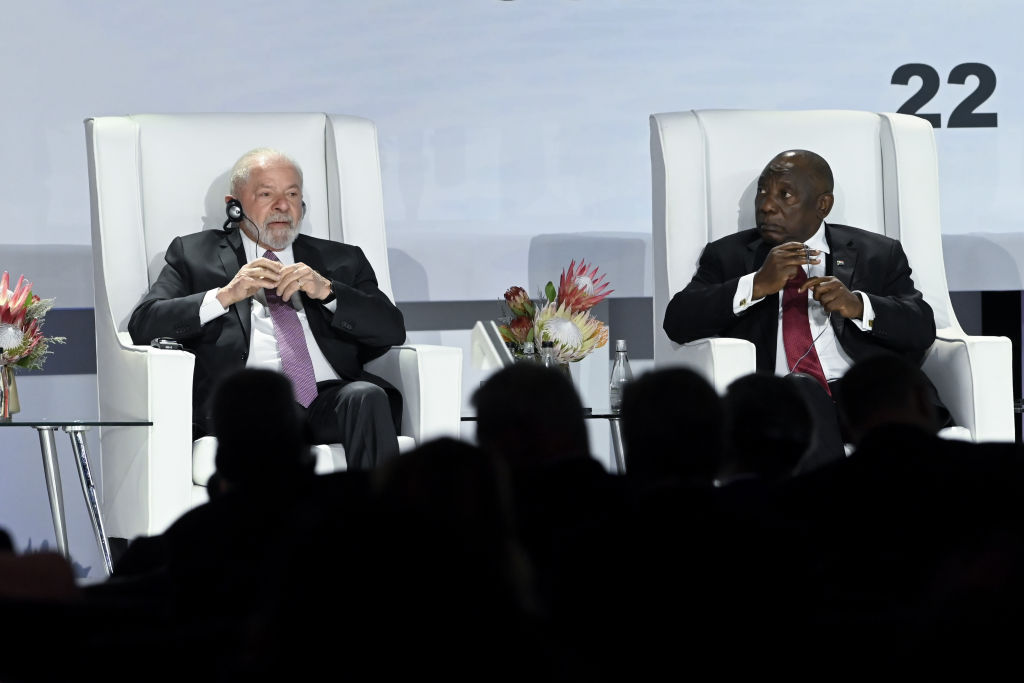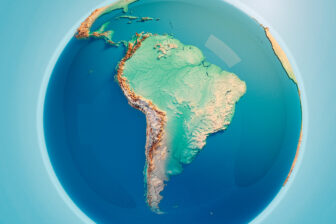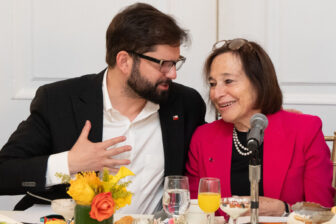QUITO — Africa is emerging as a global powerhouse, but perceptions of the continent remain tainted with stereotypes. In Latin America, people still tend to look down on Africa and Asia while looking up to Europe and North America.
A recent conversation with friends was a stark reminder of just that. As Ecuador, my home country, dealt with recurring power cuts, one commented, “We’re even worse off than South Africa,” which declared a national state of disaster for three months this year due to an energy crisis. While Ecuador’s problems may not be as severe for now, Latin American countries are not free of such challenges, yet it remains difficult for our region to identify with other parts of the Global South.
However, recent developments in African regional development, from a free trade area to the rise of the African Union, show that it’s time for a paradigm shift: Latin America must consider the invaluable lessons Africa has to offer.
Africa’s newly prominent place in the world is not solely due to its vast size and youthful population, but also stems from intentional efforts at integration. Over the past two decades, the African Union (AU) has served as a pivotal institutional platform, engaging with global agencies, financial institutions and external actors. It is paying off: The AU will get a seat at the table of the largest economies, becoming the newest permanent member of the G20 group.
Furthermore, the recently established African Continental Free Trade Area (AfCFTA) is a testament to Africa’s commitment to unity. It goes beyond a free trade agreement— AfCFTA addresses critical aspects such as the movement of people and labor, competition, investment and intellectual property.
Effective integration
These accomplishments are not minor given the sheer scale of Africa. Its land area surpasses the combined size of the United States, China and India, and is 70% larger than South America. In terms of population, by 2050, Africa will be twice the size of Europe, the U.S. and Canada combined, and three times larger than Latin America.
A smaller region should be able to integrate as well. It is unfortunate that domestic politics constantly interfere with a vision for Latin American regional unity, and that polarization prevents debates on issues that transcend national borders. Many regional spaces to promote cooperation have been created, but none has the political weight to drive true unity. A vision to overcome political clashes is essential for Latin America.
Some would argue that Latin America’s diversity and political differences are a limiting factor. However, Africa is no less diverse, and regional disparities abound on the continent. While many nations gained independence in the 1960s, there are members within the AU that are still growing democracies, some gaining their independence in the 1990s and some as late as the 2010s. The sizes of their economies are quite diverse: For example, Kenya accounts for over 40% of East Africa’s GDP, similar to how Brazil accounts for approximately a third of the Latin American regional economy. This diversity extends to the basics of communication: There are between 1,000 and 2,000 languages spoken on the continent. Understanding this diversity is vital for Latin America as we navigate our own complex regional dynamics.
Remarkably, the origins of the AU (previously taking form as the Organization of African Unity, founded in 1963) show a clear vision for a united continent. Founding member states were motivated to free Africa from colonialism and work together to protect its sovereignty.
Much has changed since then, but there still seems to be a mutual understanding among AU members that collaboration is an essential strategy for tackling disparities that exist between the Global South and their counterparts in the North. Despite their regional differences, member states acknowledge their shared challenges and work towards common goals—look no further than the Agenda 2063 strategic framework.
Beyond politics, Africa’s regional commitment extends to influencing thought leadership and communication. The Continent, for example, is a pan-African newspaper distributed weekly via WhatsApp that compiles stories from across the region. The Trace Awards and festival in Kigali inaugurated a space to bring together the rich variety of rhythms from Africa and project them globally.
Pragmatic vision
Latin America can emulate Africa’s successes in fostering unity and implementing pragmatic policies. It could take a stronger regional stance within the multilateral system, including roles in formal governance spaces as well as the leadership space. For example, joint support for a regional candidate to become the new UN Secretary General in the near future may be a concrete opportunity for political unity.
Our region could gain not only by learning from Africa’s experience in regional unity, but also by promoting closer cooperation with a region poised to play a critical global role in the near future. This can take at least two forms: One is a political collaboration, to share common positions in global discussions such as those on debt, global tax regimes and others, where the regions can share a common agenda. Second, cooperation in mutual learning on similar policy problems that is not mediated by actors in the Global North can enable practical solutions that are more applicable to the contexts of both regions.
Latin America needs to reimagine its position as a partner of Africa and Asia from whom lessons can be learned. For this, it is essential to create new narratives of who we are as a region and recognize others beyond our stereotypes.
Our region can forge meaningful collaborations with the rising powerhouse that is Africa, and will soon have the opportunity to do so as Brazil hosts the G20 Summit in 2024. It’s time to embrace a new perspective, recognizing the wealth of opportunities that lie in strengthening ties with our African counterparts.
__
Ordóñez is the executive director of Southern Voice, an open platform for think tanks that promotes evidence-based policy analysis by researchers from Global South countries.







